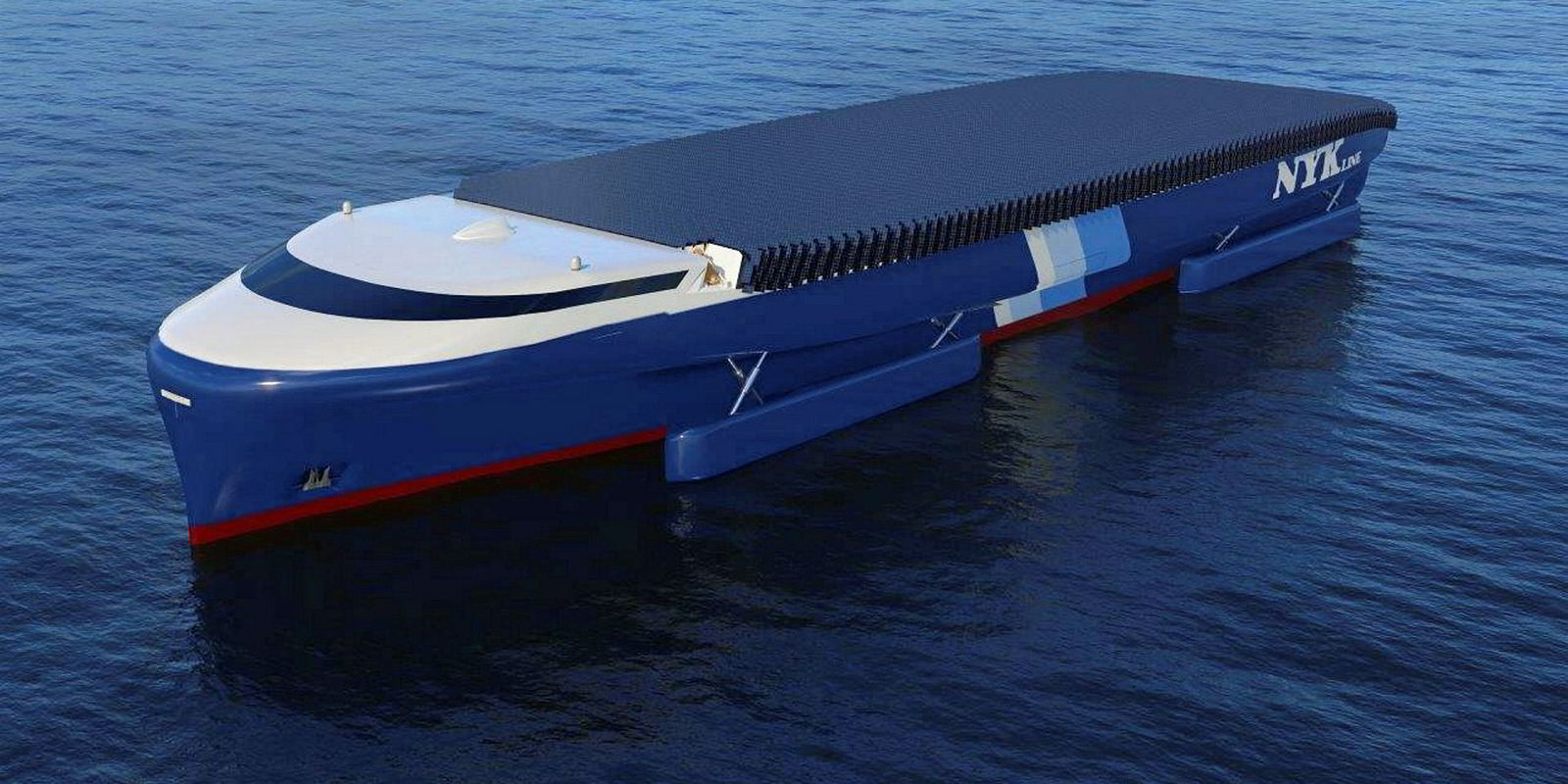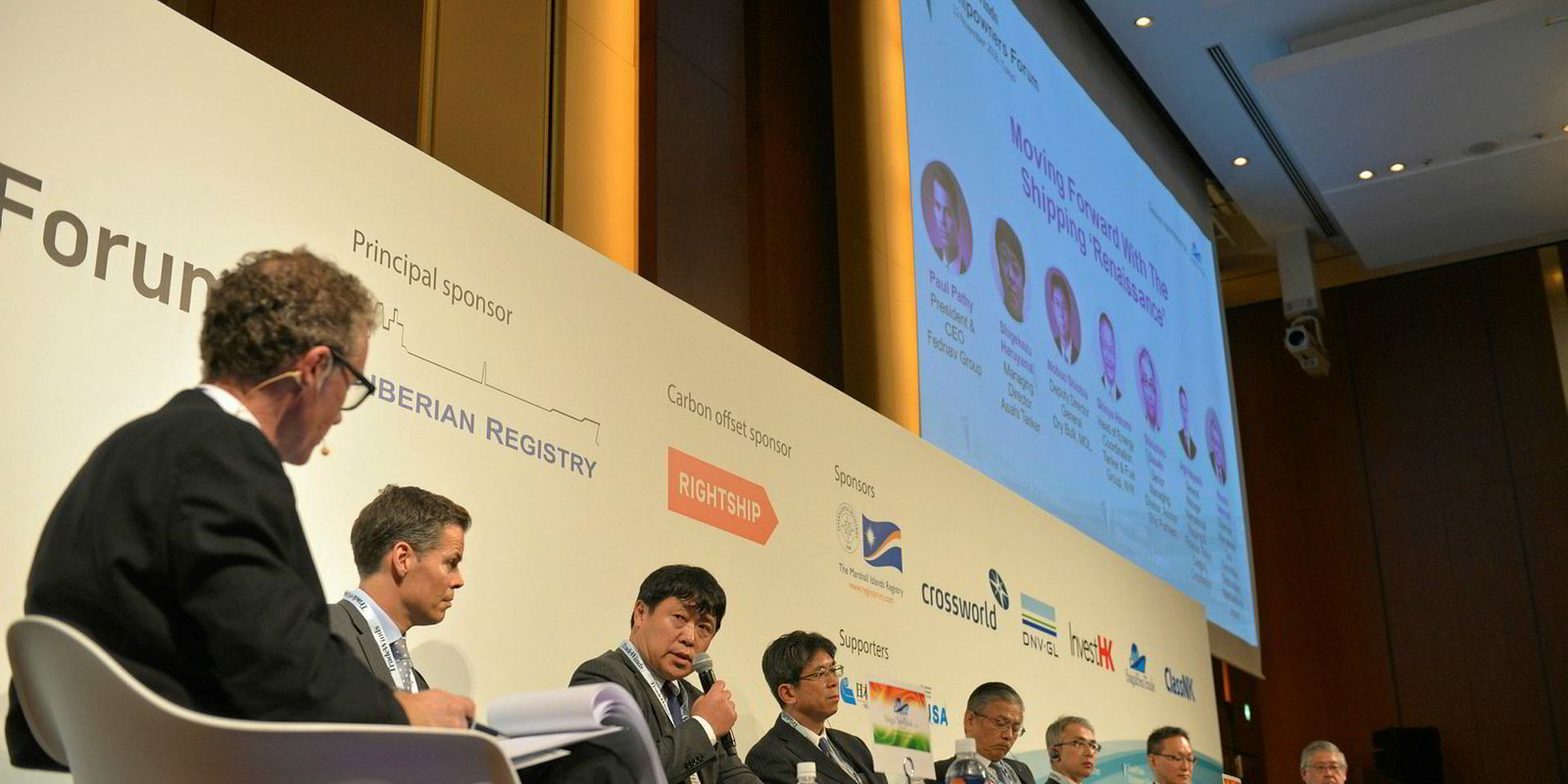Danish Ship Finance (DSF) has predicted a scenario where freight rates could be negligible as technology changes shipping forever.
Teaming up with technology company Rainmaking, it has produced a report on maritime trends that warns shipowners do not have an "exclusive runway" in the race for future value creation.
Multiple players from various industries are investing to obtain a slice of the pie, it said, with monetised data being the key, not the traditional moving of cargo from port to port.
"We expect to see an emerging shift in the ownership structure of vessels and profound changes to operating models when ecosystem players move beyond the vessels and integrate across the global supply chain," it added.
"The vessels themselves will continue to be central to the operation of moving cargo from port to port. But the data they generate will be integrated into the range of services that customers require and begin to drive future value creation far beyond freight rates.
"Ecosystem players tend to build strong customer bases in one industry, and then move laterally into others to be able to cater for all their customers’ needs from origin to destination."
Vessels marginalised?
DSF said the direct contribution of ships to value creation could be marginalised.
It said: "Freight rates could decouple both from the supply and demand balance and from vessels’ operating expenses.
"A possible scenario is that freight rates approach zero or stabilise at transaction-based low levels.
"In the event of this, secondhand prices of vessels will depreciate over time, leaving little room for asset play which currently represents a large part of value creation for many shipowners."
The report claims experience from other industries shows that any sector that becomes digitalised is likely to enter the world of exponential growth and exponential change, with digital information being easy to access, share, and distribute within and across industries.
"Once something can be represented in ones and zeros – from containerised trade to smart materials – it becomes an information-based technology that can chain react with other technological progressions and disrupt existing industries and business models, as well as unlocking new layers of untapped potential," it said.
"We argue that the business models of asset owners and ship operators are as likely as those of integrated shipowners (ie those who run a business where either technical management, commercial management or both are managed internally) to be disrupted, but for very different reasons."
Shipping losing value?
DSF argues that the core services in traditional business models (ie transporting goods from port to port) are losing their value in a digital industry, and are being usurped by other services.
"The challenge for those continuing to focus on owning assets only is that once something has been digitalised, more people are able to access the information without owning the asset (eg warehouses, ports, vessels, etc).
"This constitutes a real problem for traditional players, as we already see new players entering various parts of the global supply chain.
"These newcomers may start to upgrade specific parts of the supply chain or the entire customer journey without owning a single asset.
"The separation of data from the asset opens up a wide range of new possibilities in terms of business models and value creation."






